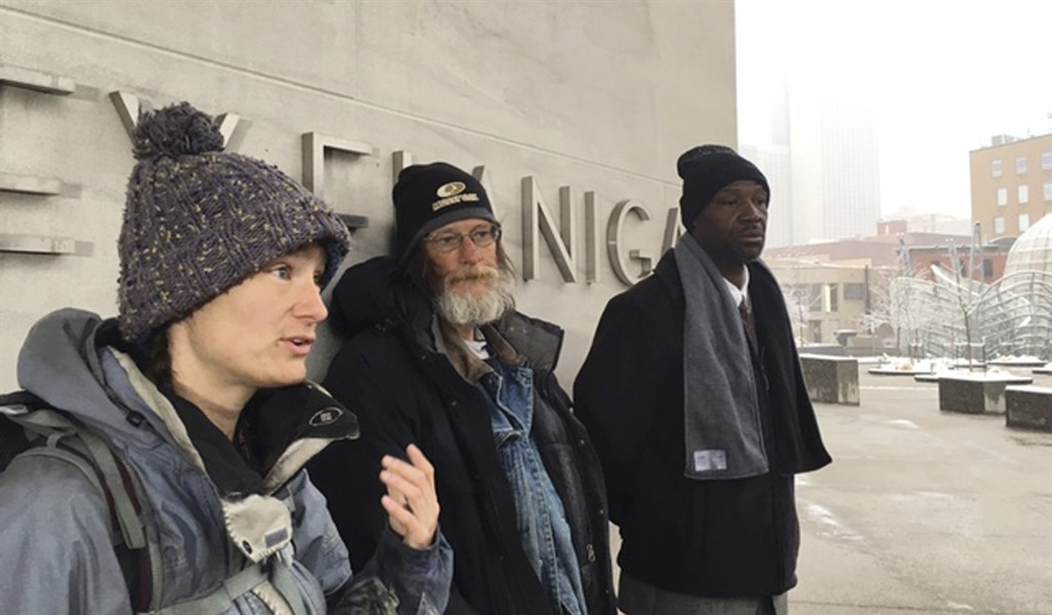Just like virtually every city in the United States, Denver, Colorado has seen a significant surge in homelessness over the past couple of years, along with rising crime rates. But rather than seeking to provide more homeless housing, food kitchens, or other typical services, the city is preparing to launch a different type of experiment. They will be giving homeless people $12,000 in cash with no strings attached. The money will be paid out with an initial cash bonanza of six thousand dollars, followed by monthly payments for the following eleven months. This limited form of a basic income guarantee is intended to see if the cash payout will “lift them out of destitution.” That sounds like a pretty sweet deal, doesn’t it? If you are so impoverished that you’re living on the streets, twelve thousand dollars would probably go quite a way and might at least see you through the colder winter months that are quickly approaching.
But there are several major catches to this plan. First of all, the portion of the funding coming from the federal government via the American Rescue Plan will only cover 140 people. That’s out of a homeless population in the city currently estimated to number nearly 7,000. They hope to include another roughly 800 homeless people through charitable donations. But even if you’re luckily enough to wind up being one of the 900 or so who might get the cash, there is another significant hoop to jump through. Nearly all of the recipients will be women or homeless people who identify as being transgender or “non-binary” in terms of gender. In other words, cisgender males need not apply. (Daily Mail)
Denver is set to provide 140 homeless people with $12,000 in cash with no strings attached to help get them out of destitution, despite soaring crime rates in the Mile-High City.
The city has allocated $ 2 million from the American Rescue Plan Act to fund the program, which will be run by the Denver Basic Income Project.
The total program, which will cost around $ 9 million, is seeking to help around 820 people, but the $ 2 million provided by the city will fund around 140 people.
Further down in the linked article you will see the notation indicating that these benefits will be given to homeless people who “will mainly be women, transgender and gender non-conforming individuals.” That would normally be a serious problem for any government benefits program. Federal funding for such programs can’t be restricted by race, gender, or pretty much anything else. It has to be made available to everyone equally.
Denver is trying to work around the rules by taking the federal grant money and giving it to the Denver Basic Income Project, a non-governmental nonprofit group. That way they can discriminate in the distribution of the funds as much as they like. But this also raises questions about the propriety of the program. The American Rescue Plan funds were specifically slated to be put toward stimulus checks, enhanced unemployment benefits, and keeping employers on their feet. How did this money wind up being diverted in this fashion?
As to the limits on who will qualify for the program, there are other issues. It should be fairly easy to identify which of the homeless applicants are women (assuming they have a biologist on the team, of course) but how do they plan to pick out the transgender and “nonbinary” applicants? Once the word gets out on the street that those are the required demographics to get your hands on that kind of cash, every male homeless person is going to show up claiming that they “identify” as a woman now. How will the screeners prove them wrong? Wouldn’t it be either transphobic or homophobic or some other form of phobia to even question them about it?
Finally, because we’ve seen other pilot programs similar to this one attempted around the country, there is one more reality that Denver doesn’t seem to be coming to grips with. There are probably a certain percentage of the homeless in Denver who only recently lost their homes, jobs, etc., and might have a decent shot at getting back on their feet. But in most homeless communities, the majority of people on the streets are suffering from some form of mental infirmity or drug and alcohol addiction (or both) and are simply not ready or even willing to transition back to some sort of normal, housed, and employed situation. If you hand them 12,000 dollars, it’s probably going to result in a wild binge lasting a couple of months at best before they’re right back where they are now. This money could probably have helped put a lot of people who actually want to be helped into substance abuse programs or mental health counseling.








Join the conversation as a VIP Member